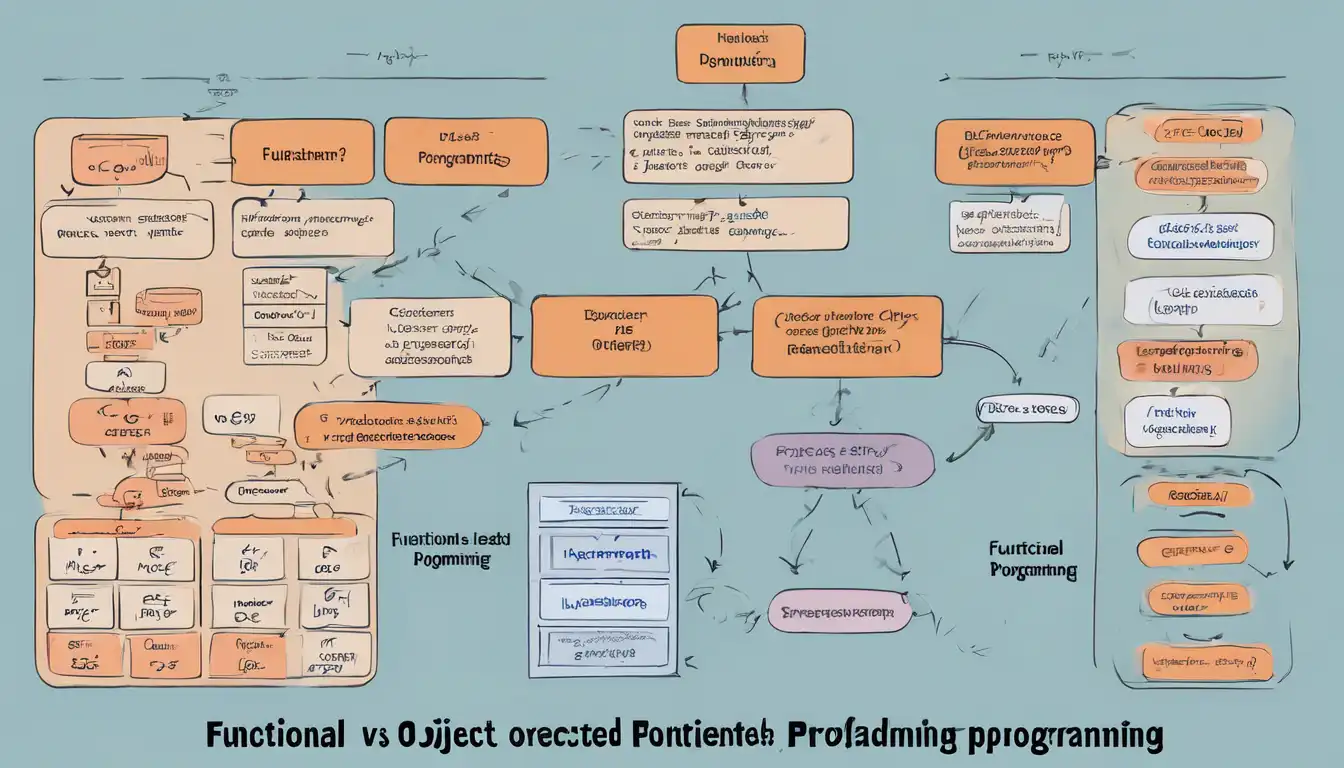Introduction to Programming Paradigms
In the world of software development, understanding the differences between functional programming (FP) and object-oriented programming (OOP) is crucial for choosing the right approach for your project. Both paradigms offer unique advantages and challenges, making them suitable for different types of applications.
What is Functional Programming?
Functional programming is a paradigm that treats computation as the evaluation of mathematical functions and avoids changing-state and mutable data. It emphasizes the application of functions, in contrast to the imperative programming style, which emphasizes changes in state.
- Immutable Data: In FP, data is immutable, meaning it cannot be changed after it's created.
- First-Class Functions: Functions are treated as first-class citizens, allowing them to be passed as arguments to other functions.
- Pure Functions: Functions in FP are pure, meaning they always produce the same output for the same input and have no side effects.
What is Object-Oriented Programming?
Object-oriented programming is a paradigm based on the concept of "objects", which can contain data and code: data in the form of fields, and code, in the form of procedures. OOP focuses on the objects that developers want to manipulate rather than the logic required to manipulate them.
- Encapsulation: OOP encapsulates data and functions that operate on the data within objects.
- Inheritance: Objects can inherit characteristics from other objects, promoting code reuse.
- Polymorphism: OOP allows objects to be treated as instances of their parent class rather than their actual class.
Comparing Functional and Object-Oriented Programming
When deciding between FP and OOP, consider the nature of your project. FP is often preferred for applications requiring high levels of concurrency or mathematical computations, while OOP is suited for large, complex systems with clear hierarchies.
- FP promotes a declarative programming style, making code more concise and predictable.
- OOP's use of objects makes it easier to model real-world scenarios and manage state.
Conclusion
Both functional and object-oriented programming have their place in software development. By understanding the strengths and weaknesses of each, developers can make informed decisions about which paradigm to use based on the requirements of their project. For more insights into programming paradigms, explore our guide on programming paradigms.
